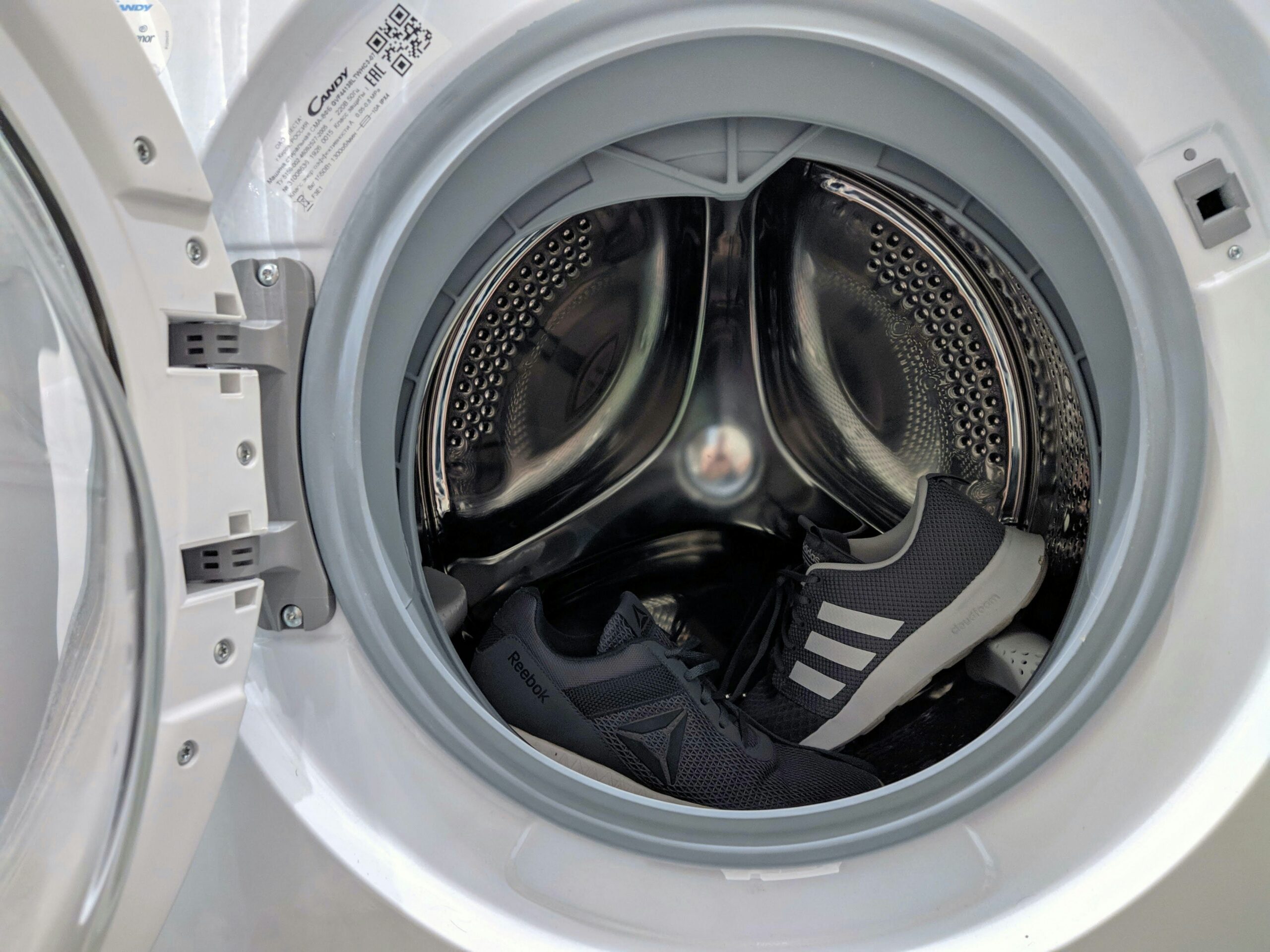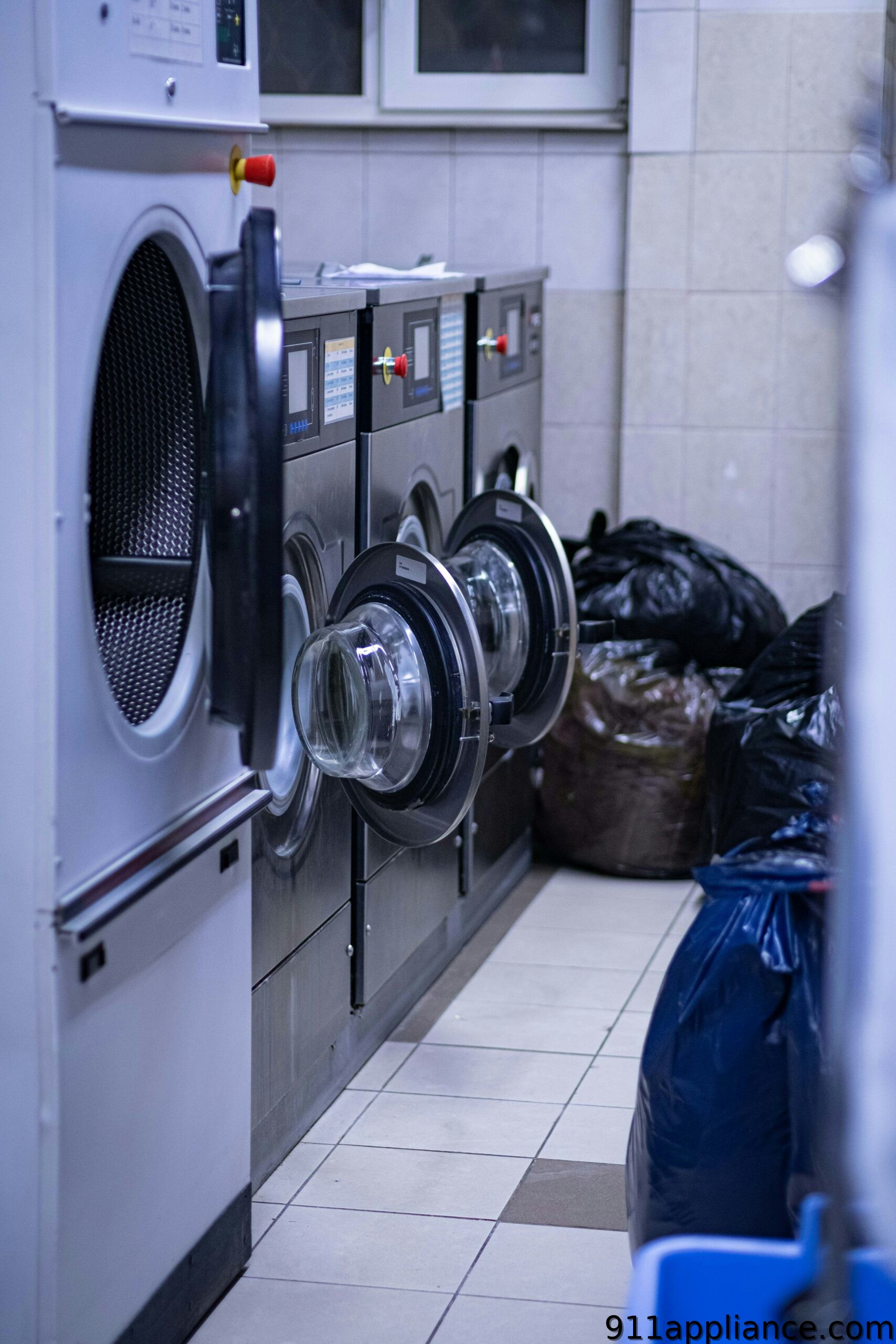Washing machines are an essential appliance in most households, making laundry chores much easier and more convenient. However, like any other appliance, washing machines can experience problems from time to time. These issues can range from minor inconveniences to major malfunctions that require professional repair. It is important to address these problems promptly to avoid further damage and ensure the longevity of your washing machine.
Table of Contents
- Key Takeaways
- Understanding Washer Components
- Washer Not Turning On
- Washer Not Draining Properly
- Washer Making Strange Noises
- Washer Leaking Water
- Washer Not Spinning Clothes Dry
- Washer Not Cleaning Clothes Thoroughly
- Washer Overheating or Not Heating Up
- Conclusion and Tips for Preventing Future Washer Problems
- What are the most common signs of washer problems to look out for?
- FAQs
- What are some common washer problems?
- What causes leaks in a washer?
- What causes excessive noise in a washer?
- What causes a washer to fail to spin?
- What causes a washer to fail to drain?
- What causes a washer to fail to start?
Key Takeaways
- Common washer problems include not turning on, not draining properly, making strange noises, leaking water, not spinning clothes dry, not cleaning clothes thoroughly, and overheating/not heating up.
- Understanding the components of a washer can help diagnose and fix problems more effectively.
- If your washer is not turning on, check the power source and make sure the door is properly closed.
- If your washer is not draining properly, check for clogs in the drain hose or pump filter.
- If your washer is making strange noises, it could be due to a faulty motor or worn-out bearings.
- If your washer is leaking water, check for loose connections or damaged hoses.
- If your washer is not spinning clothes dry, it could be due to a faulty belt or motor.
- If your washer is not cleaning clothes thoroughly, check for clogs in the detergent dispenser or a faulty water inlet valve.
- If your washer is overheating or not heating up, it could be due to a faulty thermostat or heating element.
- Regular maintenance and proper usage can help prevent future washer problems.
Understanding Washer Components
To effectively troubleshoot and fix common washer problems, it is helpful to have a basic understanding of the different components of a washing machine and their functions. The main parts of a washing machine include the drum, agitator or impeller, motor, pump, control panel, and various hoses and valves.
The drum is where you place your clothes for washing. It rotates during the wash cycle to agitate the clothes and remove dirt and stains. The agitator or impeller helps to move the clothes around in the drum for a thorough clean.
The motor is responsible for powering the drum’s rotation and controlling the various cycles of the washing machine. The pump is used to drain water from the drum during the spin cycle. The control panel allows you to select different wash settings and monitor the progress of your laundry.
Each component plays a crucial role in the functioning of a washing machine, and any issues with these parts can lead to common washer problems.
Washer Not Turning On
One of the most frustrating problems you may encounter with your washing machine is when it fails to turn on. There are several possible causes for this issue. First, check if the power cord is securely plugged into an outlet and that there is power supply to that outlet. If there is no power, check your circuit breaker or fuse box to see if a circuit has been tripped or a fuse has blown.
If there is power supply but your washing machine still won’t turn on, it could be due to a faulty control panel or a problem with the motor. In this case, it is best to consult a professional technician to diagnose and fix the issue.
Washer Not Draining Properly
Another common problem with washing machines is when they fail to drain properly. This can result in water pooling in the drum or even leaking onto the floor. There are several reasons why a washing machine may not be draining properly.
First, check if there is any debris or lint clogging the drain hose or pump. Remove any blockages and ensure that the drain hose is properly connected and not kinked. If the drain hose is clear and properly connected, the issue may lie with the pump itself. The pump may be faulty or worn out and will need to be replaced.
To prevent future drain blockages, it is important to regularly clean out the lint filter and remove any debris from the drum after each wash cycle.
Washer Making Strange Noises
If your washing machine is making strange noises during operation, it could be an indication of a problem. Common noises include banging, grinding, squeaking, or rattling sounds. These noises can be caused by a variety of issues.
One possible cause is an unbalanced load. If the clothes inside the drum are not distributed evenly, it can cause the washing machine to shake and make loud banging noises. To fix this issue, simply redistribute the clothes evenly in the drum.
Another possible cause of strange noises is a worn-out belt or motor coupling. These components can become loose or damaged over time, resulting in grinding or squeaking sounds. If you suspect that this is the issue, it is best to consult a professional technician for repair.
Washer Leaking Water

Water leakage from a washing machine can be a major problem that needs immediate attention. There are several potential causes for water leakage. First, check if the water inlet hoses are securely connected to the back of the washing machine. If they are loose or damaged, they may need to be replaced.
Another possible cause is a faulty door seal or gasket. Over time, these seals can become worn out or damaged, resulting in water leakage. Inspect the door seal for any signs of wear or damage and replace it if necessary.
If the issue persists, it could be due to a problem with the water pump or drain hose. The pump may be leaking or the drain hose may be clogged or damaged. In these cases, it is best to consult a professional technician for repair.
Washer Not Spinning Clothes Dry
If your washing machine is not spinning clothes dry, it can be frustrating and time-consuming. There are several reasons why a washing machine may not be spinning properly. First, check if the load is too heavy or unbalanced. An overloaded or unbalanced load can prevent the drum from spinning at full speed. Simply remove some clothes or redistribute them evenly in the drum to fix this issue.
Another possible cause is a faulty lid switch or door latch. If the lid switch or door latch is not functioning properly, it can prevent the washing machine from entering the spin cycle. Inspect these components for any signs of damage and replace them if necessary.
If the issue persists, it could be due to a problem with the motor or belt. These components may need to be replaced by a professional technician.
Washer Not Cleaning Clothes Thoroughly
If your washing machine is not cleaning your clothes thoroughly, it can be frustrating and defeat the purpose of doing laundry. There are several possible causes for this issue. First, check if you are using the correct amount of detergent for your load size and water hardness. Using too much detergent can result in residue buildup on your clothes, while using too little can lead to inadequate cleaning.
Another possible cause is a clogged detergent dispenser or fabric softener dispenser. These dispensers can become clogged with detergent or fabric softener residue, preventing them from properly dispensing the cleaning agents. Clean out the dispensers regularly to prevent clogs.
If the issue persists, it could be due to a problem with the agitator or impeller. These components may not be functioning properly, resulting in inadequate cleaning. In this case, it is best to consult a professional technician for repair.
Washer Overheating or Not Heating Up
If your washing machine is overheating or not heating up at all, it can be a sign of a problem with the heating element. The heating element is responsible for heating the water during the wash cycle. Over time, the heating element can become worn out or damaged, resulting in overheating or no heat at all.
To troubleshoot this issue, first check if the temperature settings on your washing machine are set correctly. If the settings are correct but there is still no heat, it is likely that the heating element needs to be replaced. It is best to consult a professional technician for this repair.
Conclusion and Tips for Preventing Future Washer Problems
In conclusion, washing machines can experience a variety of common problems that can be frustrating and inconvenient. It is important to address these issues promptly to avoid further damage and ensure the longevity of your washing machine.
To prevent future washer problems, it is important to maintain your washing machine properly. Regularly clean out the lint filter and remove any debris from the drum after each wash cycle. Check and clean the drain hose and pump regularly to prevent blockages. Use the correct amount of detergent for your load size and water hardness to prevent residue buildup.
If you encounter any major issues with your washing machine that you are unable to fix yourself, it is best to consult a professional technician for repair. They have the knowledge and expertise to diagnose and fix complex problems with your washing machine.
If you’re looking for more information on common washer problems and how to fix them, be sure to check out the blog section of 911 Appliance Repair’s website. They have a helpful article titled “Top 5 Washer Maintenance Tips to Extend its Lifespan” that provides valuable insights and tips for keeping your washer in top condition. Whether you’re dealing with a noisy washer, a leaking machine, or any other common issue, this article will guide you through the necessary steps to ensure your washer lasts for years to come. Don’t miss out on this informative resource! Read more here.
What are the most common signs of washer problems to look out for?
Some common washer problem symptoms to look out for include loud noises during the wash cycle, water leaking from the machine, the washer not spinning or draining properly, and a strange odor coming from the appliance. If you notice any of these signs, it may be time to have your washer checked by a professional.
FAQs
What are some common washer problems?
Some common washer problems include leaks, excessive noise, failure to spin, failure to drain, and failure to start.
What causes leaks in a washer?
Leaks in a washer can be caused by a variety of factors, including a damaged or worn out hose, a faulty pump, a damaged tub seal, or a damaged door seal.
What causes excessive noise in a washer?
Excessive noise in a washer can be caused by a variety of factors, including a worn out belt, a damaged pump, a damaged tub bearing, or a damaged motor coupling.
What causes a washer to fail to spin?
A washer may fail to spin due to a variety of factors, including a damaged or worn out drive belt, a faulty motor, a damaged motor coupling, or a faulty lid switch.
What causes a washer to fail to drain?
A washer may fail to drain due to a variety of factors, including a clogged drain hose, a faulty pump, or a damaged drain pump belt.
What causes a washer to fail to start?
A washer may fail to start due to a variety of factors, including a faulty door switch, a damaged timer, a faulty motor, or a faulty control board.



